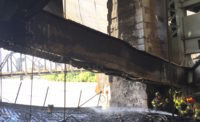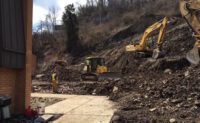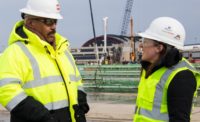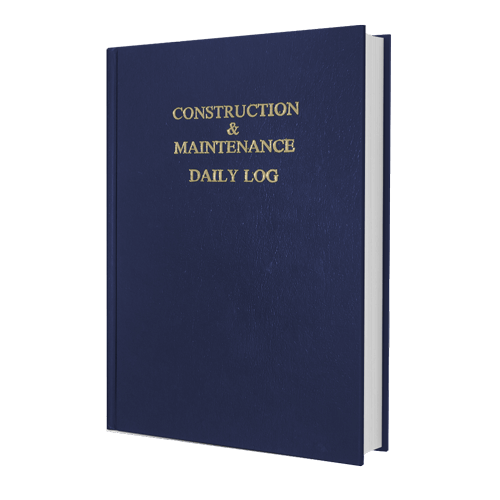Engineering Justice
Reconnecting a Community: Pittsburgh Planners Hope to Heal Old Wounds
Development connecting the city’s Lower Hill District to Downtown aims to build an inclusive mini-neighborhood

Is it possible for a redevelopment effort to foster social healing? Planners in Pittsburgh are banking on it, with a soon-to-start project in the city’s Lower Hill District. The goal is to connect that area to the rest of the Hill, as well as with Downtown—while healing old wounds that have been smarting for more than 50 years.
Surface parking lots currently occupy the area that will be a mixed-use development of office space and housing, anchored by a park amidst it. The development aims to build a more inclusive community by redressing old grievances and building a new mini-neighborhood that will provide a sort of gateway into the Hill, near the city’s hockey arena.
For more stories in ENR's Engineering Justice series, click here
In the 1960s, when the now long-gone Civic Arena was built, city planners razed a section of the Lower Hill District—a historically Black community—with promises that the area would be redeveloped. It never was, despite the displacement of small businesses and many residents.
Now, after the razing a decade ago of the old arena and its replacement nearby with a new arena, development efforts in that spot are entering the homestretch. The product of an inclusive effort involving the community is a 28-acre development breaking ground this month. It will be anchored by a new $220-million headquarters for FNB Corp.
But that’s just the first phase of the project, which is a community-minded revitalization led by the Pittsburgh Penguins in cooperation with Pittsburgh’s Urban Redevelopment Authority, FNB Corp., and the project’s developer, Buccini Pollin Group. PJ Dick is the contractor.
The project will develop the arena site and engender more development in the Hill District, which is in general a poorer community of Pittsburgh. The area will be reconnected to Downtown with the Interstate 579 cap, which is under construction. That project will feature a park atop the Crosstown Expressway—which has been a rather daunting byway and something of an obstacle for pedestrians to cross. Public open space will include a series of terraced areas and stepped pathways, serving as a transition up the Lower Hill. Future planned urban open space will continue east up Wylie Avenue ending at Crawford Street.
The Pennsylvania Dept. of Transportation-led cap project will be completed this fall. The FNB project will be under construction into 2023.
Also, the urban grid destroyed in the 1960s-era razing, was rebuilt, with Wylie Avenue extended.
Diamonte Walker, deputy director of Urban Redevelopment Authority, is upbeat about the project.
"As a Hill District resident, it is important to me that we root ourselves in history but simultaneously ensure that we are bending the arc of prosperity towards present day Hill District residents. I am a 5th generation Hill District resident, so I am invested both personally and professionally. The preservation of the existing culture, the inclusion and manifestation of the vision of current Hill stakeholders is significant and valuable,” Walker said. “I believe this project, despite the tumultuous events that brought us to this moment, has the ability to benefit the Hill on a social, political, economic, and cultural level. I hold a great sense of confidence in the current configuration of the Hill District's leadership to ensure this happens. When you look at the Hill's current community leadership, composition of the development team, elected leaders representing the district, and the current URA board leadership, it is as though the stars have aligned to give the Hill District a real opportunity for restorative neighborhood revitalization."
Pittsburgh Penguins chief operating officer Kevin Acklin notes that this phase of the redevelopment effort is part of a larger package.
“The FNB Financial Center is just the first stage of the Lower Hill redevelopment, and will serve as a catalyst to advance the reconnection of the Hill District to Downtown,” Acklin says. “We are pursuing an overall $1-billion development which attracts an injection of private capital investment into the center of the city, and will generate thousands of immediate construction jobs and thousands more permanent jobs.”
Along with the large urban open space park through the center of the site, "we’re also [planning] parking structures to accommodate PPG Paints Arena, and to catalyze future housing and commercial development on the Lower Hill,” Acklin adds.
But can a smart redevelopment like this one really heal old wounds?
“Nothing can erase [those past] mistakes … but we are committed to restorative development that creates jobs for the neighborhood and tax revenue for the city and region,” Acklin says.
Acklin says the Penguins have worked with stakeholders for more than a decade “to rebuild trust and create a Lower Hill development that invests millions in the neighborhood.” He also noted that the project has “the highest commitments to” minority- and women-owned business enterprises.
“Each aspect of the development is guided by the Community Collaboration and Implementation Plan,” Acklin says, “which is a partnership among the development team, the city and the Hill District neighborhood.”





